A piglet squeals eager for its morning feed from mother. The chickens scratch beneath the grass in search of bugs our eyes cannot see. A farmer tends to her crop dotted with fresh morning dew. Children gather beneath the macadamia trees foraging for fallen nuts and cracking them open in delight.
It’s a romantic image of a village long forgotten and yet being revived at The Farm. There is something so instinctual about our human need to be connected with the land and our food, it’s a wonder how we became so divorced from this concept in the first place.
To have a communal space where we can gather over good food, knowing precisely how it was grown and raised. The sheer pleasure of seeing children free ranging and enjoying the animals, the gardens and the green spaces is enough to make many ponder, where did we go wrong?
What started as a collective of individuals drawn together by a united cause, The Farm has evolved into a paddock to plate food revolution with a clear message.
Photagraphy by David Simpson
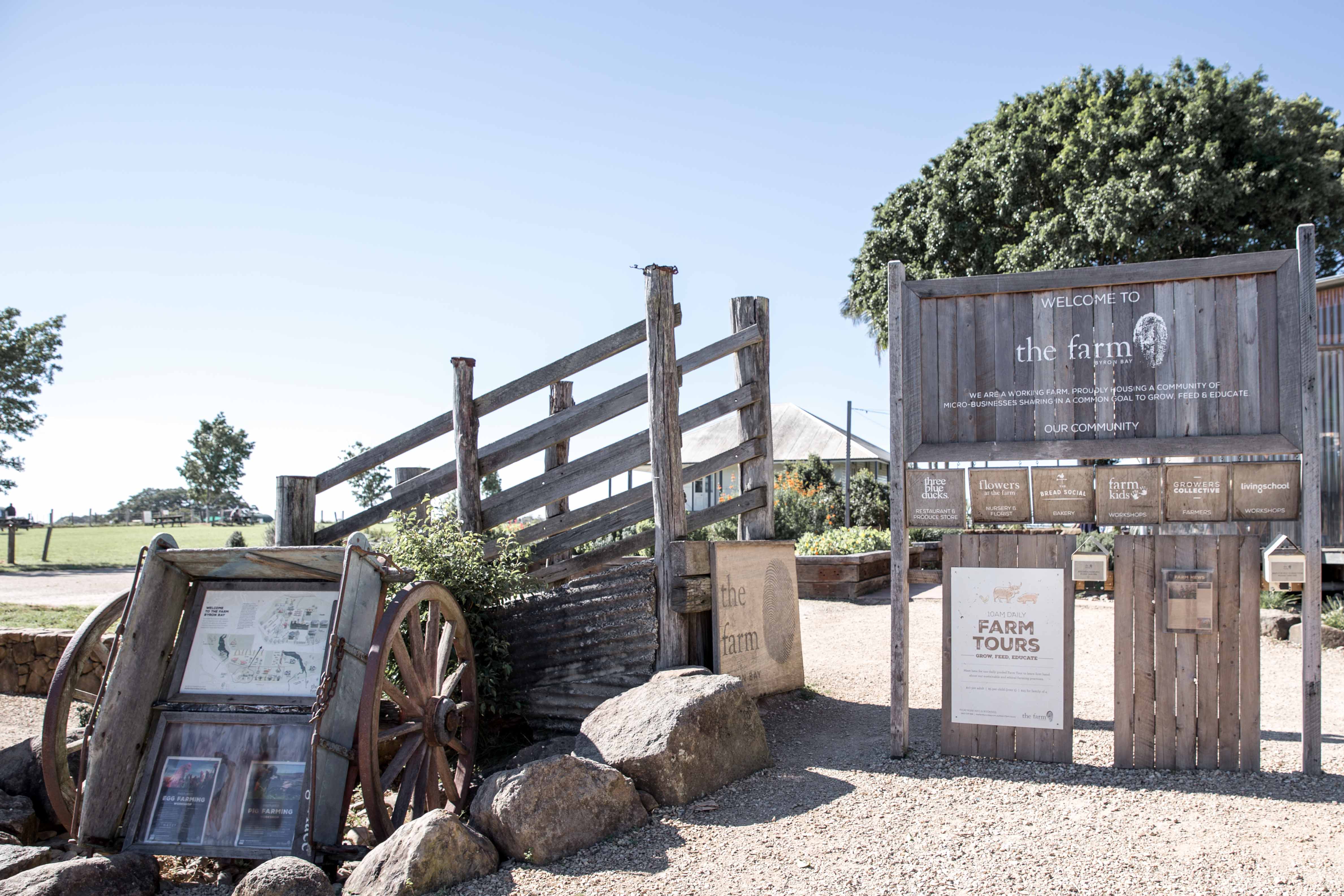
"Grow. Feed. Educate. It's a simple philosophy with deep roots."
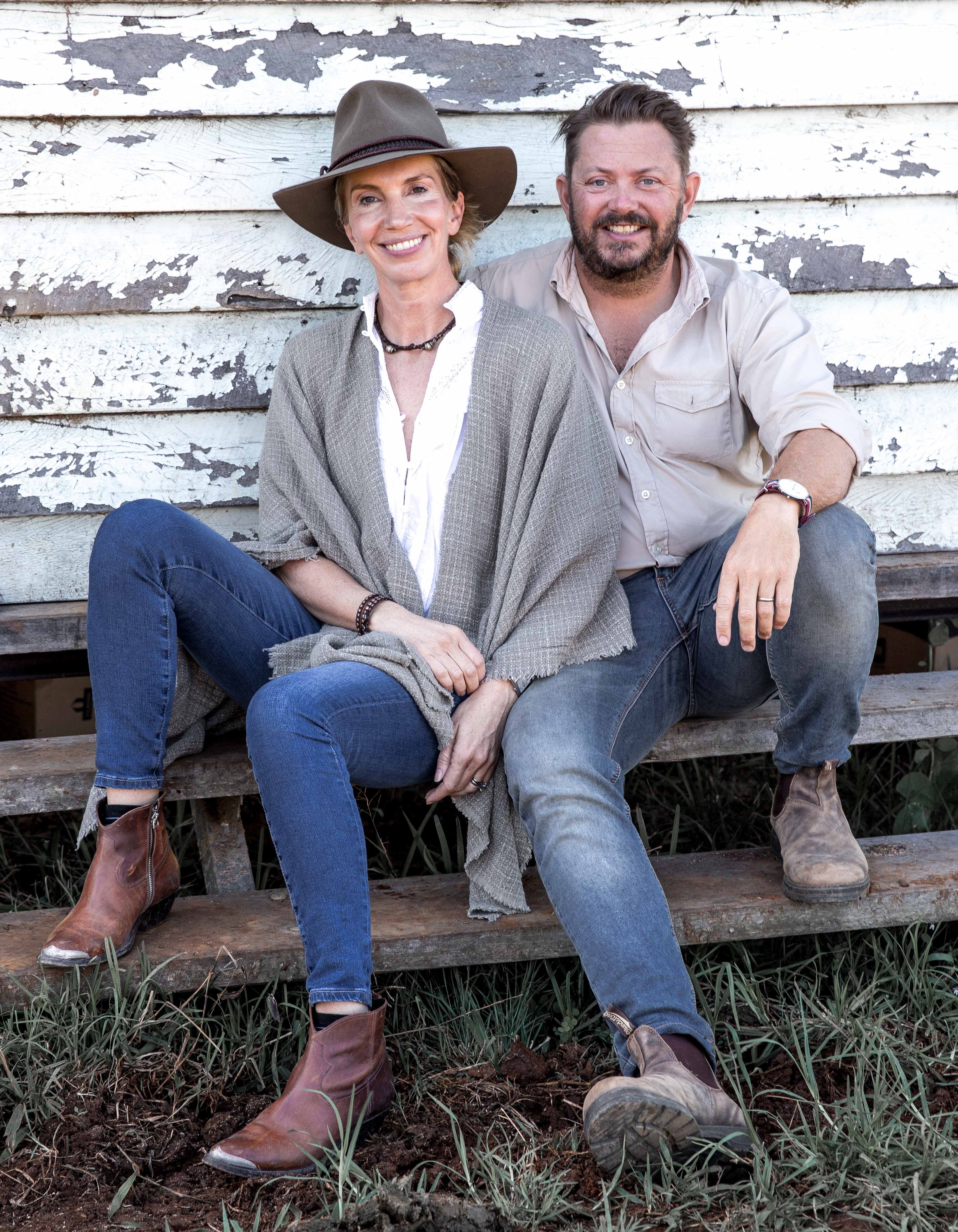
Starting With A Seed
It was their own fairy tale beginning that would bring a whole new meaning to Jack and the Beanstalk.
When their little girl Matilda went missing one afternoon, it was to Tom and Emma Lane’s surprise to find her sitting among the bean stalks plucking beans straight from the vine and into her mouth.
The very beans she had helped to plant and nurture. From here, an idea was planted.
Tom explains, “We pondered, if we could grow good food for our little family, what would it look like to do this on a larger scale?”
Nestled in the picturesque Byron shire countryside, The Farm is now two years into its operations and drawing people from far and wide into its vision.
Prior to the Lanes purchasing the land, the 80 acre property had transitioned through various seasons of change. A slew of previous owners had farmed timber pulp, sugar cane, dairy, gladiolus and cattle. Large pockets of land had been left severely degraded.
In an attempt to do better, The Farm isn’t just growing food using organic, ethical and sustainable farming practices. They are feeding the soil, incubating businesses that feed families, and equally as important, feeding and growing communities of individuals to think better, do better and to consume more consciously.
Part of their regeneration program has seen to over 3000 trees being planted to reforest the Simpson Creek running through their property. Eels have returned from downstream and the bird life is flourishing; a vital sign that the ecological heart is beating strong.
Last year alone, The Farm turned over 7 tonnes of compost, harvested 20 tonne of vegetables, gathered 120,000 eggs, and raised 85 pigs and 20 cows to feed the thousands of people who walked through The Farm’s gates. It’s clear to see the community heart is beating strong too.
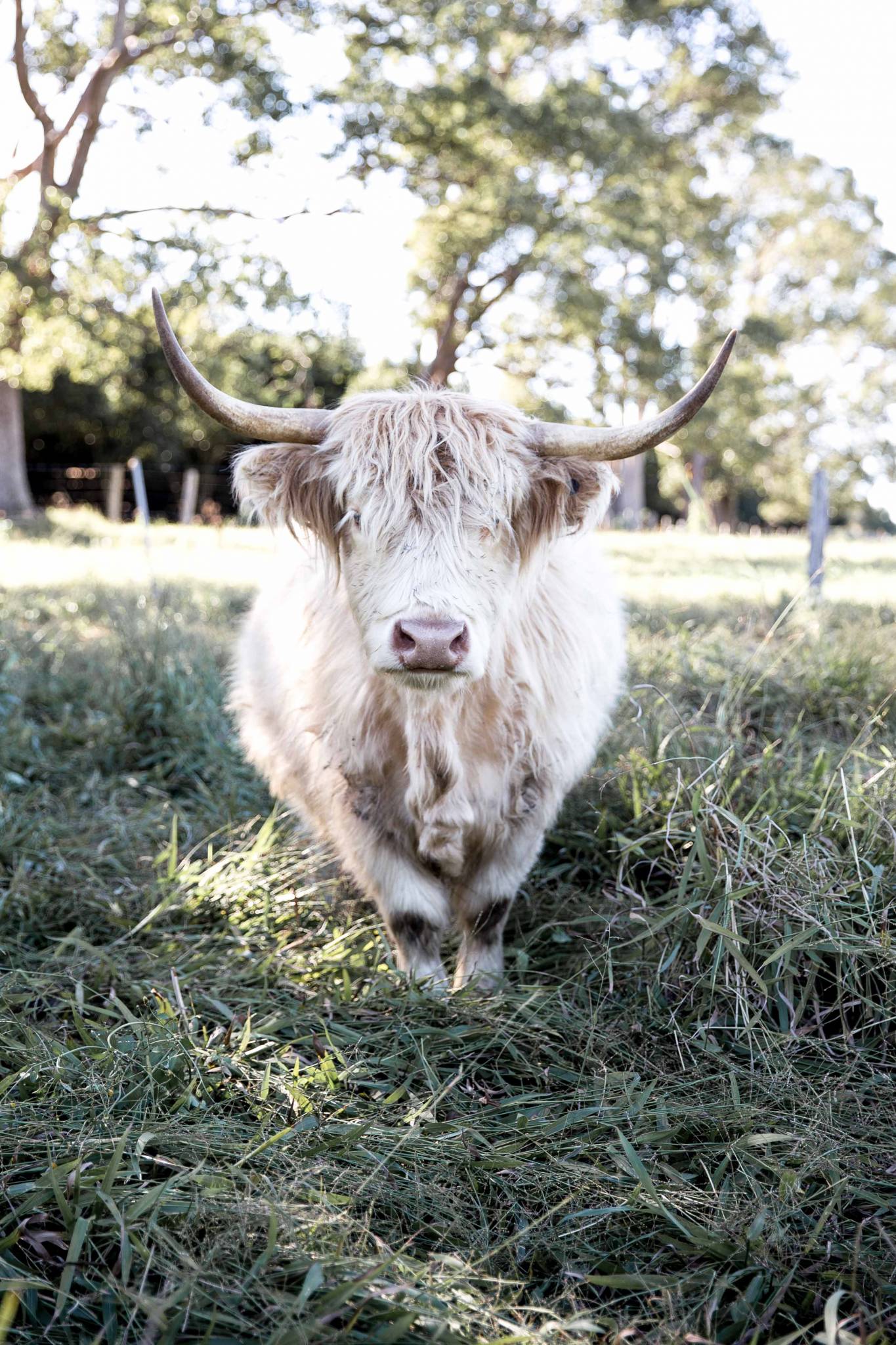
Feeding The Village
The concept of ‘the village’ has long been demolished by modern society.
Since the 1950s, our agricultural climate has shifted remarkably. Prior to the 1950s, supermarkets didn’t exist. There were small grocers and local producers who were the bedrock of the village.
We now see large supermarket chains dictating what, when and how much the farmer grows. Food that is largely being thrown in with a slurry of unrecognisable ingredients to be processed and packaged.
With a name as poignant as ‘The Farm,’ it’s this idea of a safe and central meeting space for communities to gather around good food that makes The Farm so revolutionary and yet, so not.
Human history is dotted with examples of whole civilisations spawning from small villages.
Tom reinforces that what they are doing isn’t anything new. It’s a village environment with a modern twist. Within their village model, onwards of 15 microbusinesses have the opportunity to thrive.
Each working in a tightly-knit network. Interrelated and yet independent.
Tom and Emma, as coordinators, rather than dictating overlords of The Farm, don’t interfere in the running of the independent businesses.
Everyone is there because they want to exist as part of a collaborative fabric bringing about social change.
Naturally, it’s not without its challenges. Communication has become one of the most highly prized tools on the farm.
But the number of successful enterprises continue to grow. Among the ranks that have sprouted include the famous Three Blue Ducks Restaurant, The Bread Social, Flowers at the Farm, a collective of independent growers, kids’ programs, and ongoing educational workshops.

A Land of New Possibilities
The Farm is setting an example of how things can be done differently in hope of inspiring a ripple effect. It was established to provide an alternative model for what is possible. While not perfect, it’s an evolving project in and of itself.
Tom explains, “We’ve changed along the way. The way we do it and how we do it. You just learn. There’s no rule book, particularly on the farming side of things. A lot of it is trial and error and just rolling your sleeves up and having a go.”
It’s not uncommon for The Farm to be the first point of contact for consumers looking to learn more about where their food comes from. For some people, it’s their first real taste of farm life. To see what it means to grow and produce food that’s not only good for you, but nurturing the environment alongside you.
The Farm is awakening the consumer conscience to a possibility that there is a better way. One that is equitable and economical. Both for the consumer and the farmer.

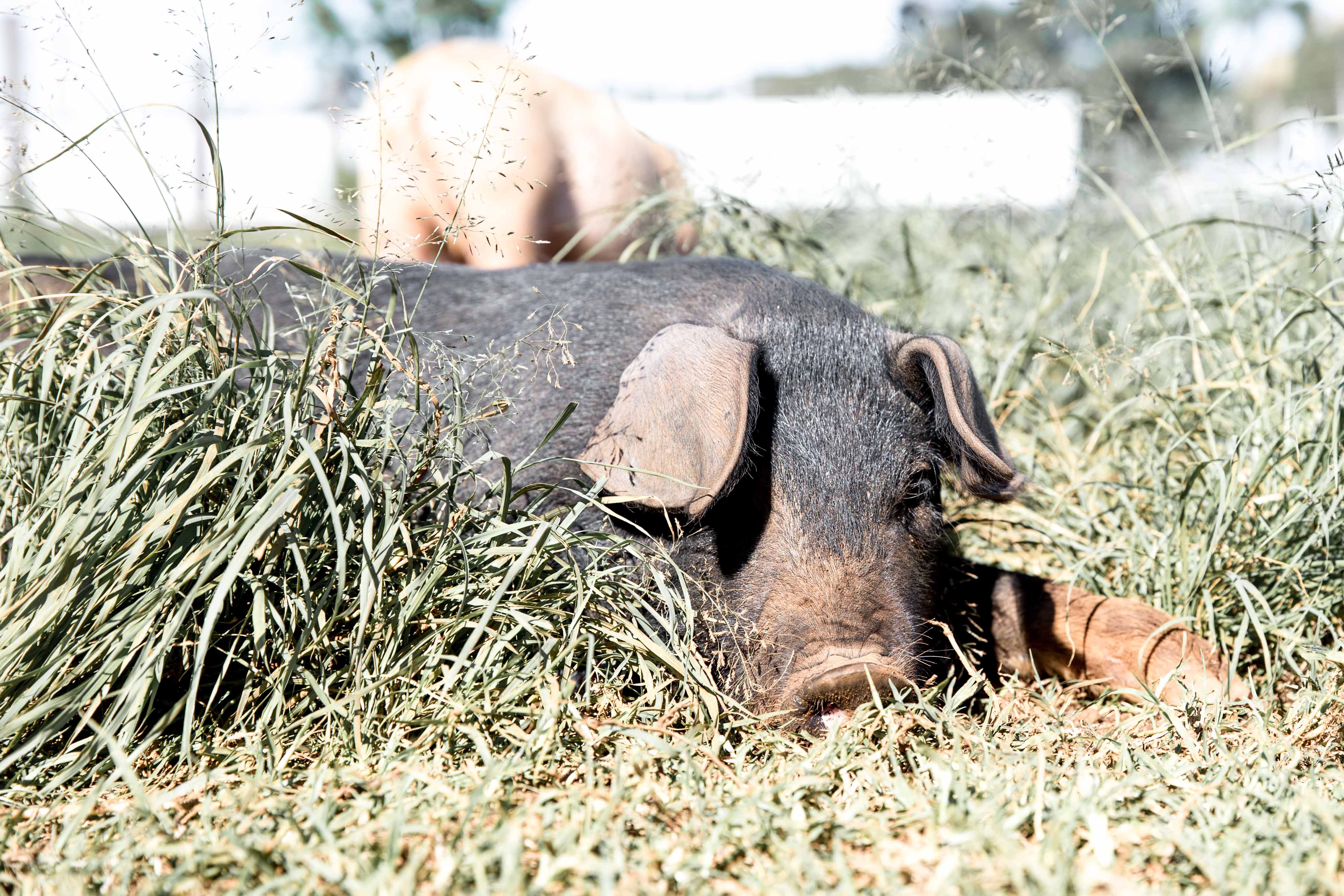
Growing Farmers and Soil
One of the biggest questions that society has yet to answer for, is why must the farmer and the soil suffer to the hands of our food system?
The way of modern food system is set up, we are so disconnected to where our food comes from. It makes it hard for you, as the consumer, to really understand the price we are paying in the long term under the current model.
One where farming is no longer a profitable venture for the farmer. Where the soil is degraded to a point it cannot sustain the very ecosystems that sustain us.
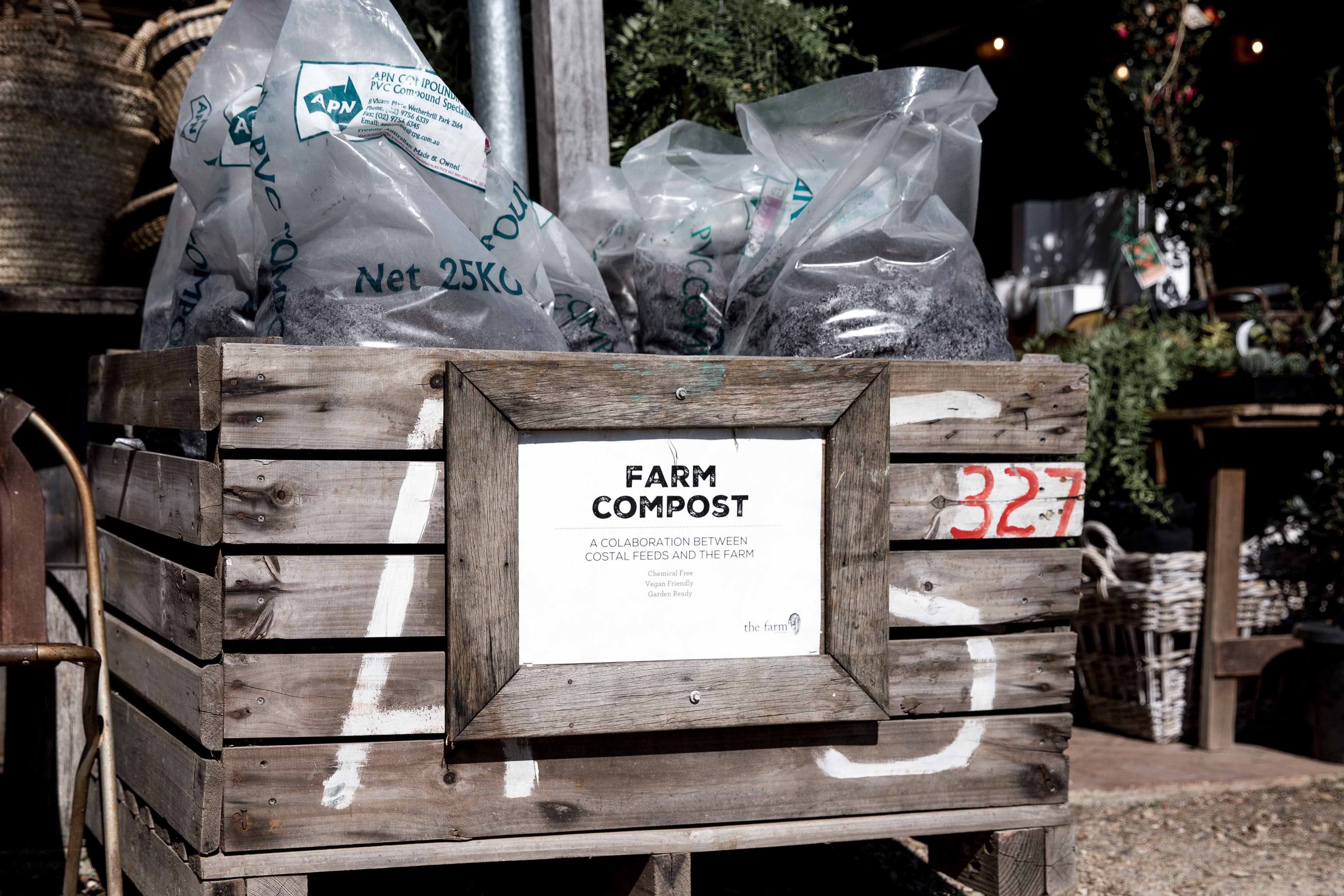
It’s collaborative ventures like The Farm that are inspiring a whole new generation of not only consumers, but farmers. The Farm supports families with the autonomy to create their own enterprises and futures, all while contributing to their greater village.
In the past 2 years since The Farm’s inception, they’ve paved way for over 125 new jobs.
They rely on word of mouth for marketing and their network of farmers and workers share labour, exchange and barter.
Growers are given access to land rent-free for the first 12 months and have an instant market selling to the onsite restaurant, bakery and farm gate.
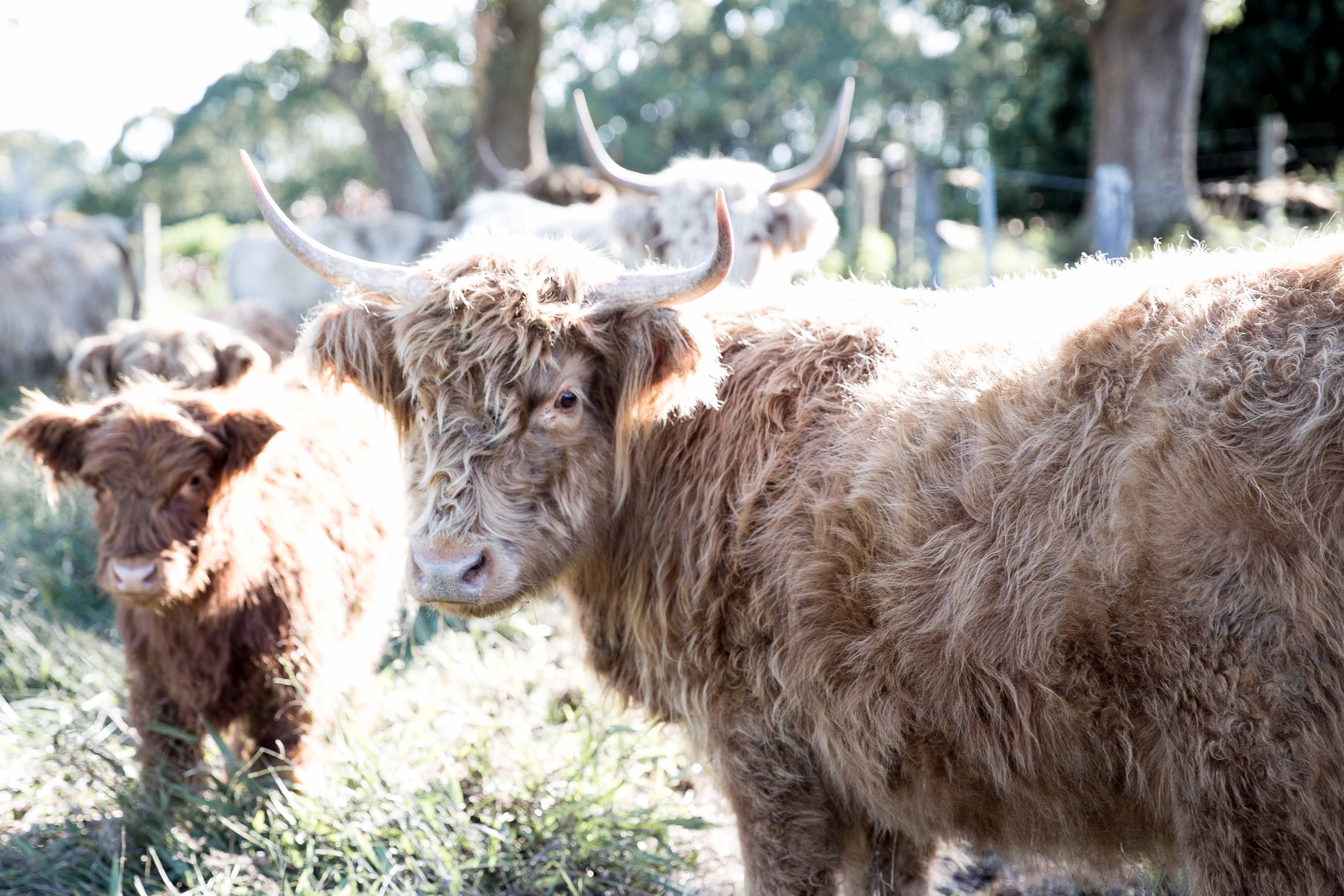
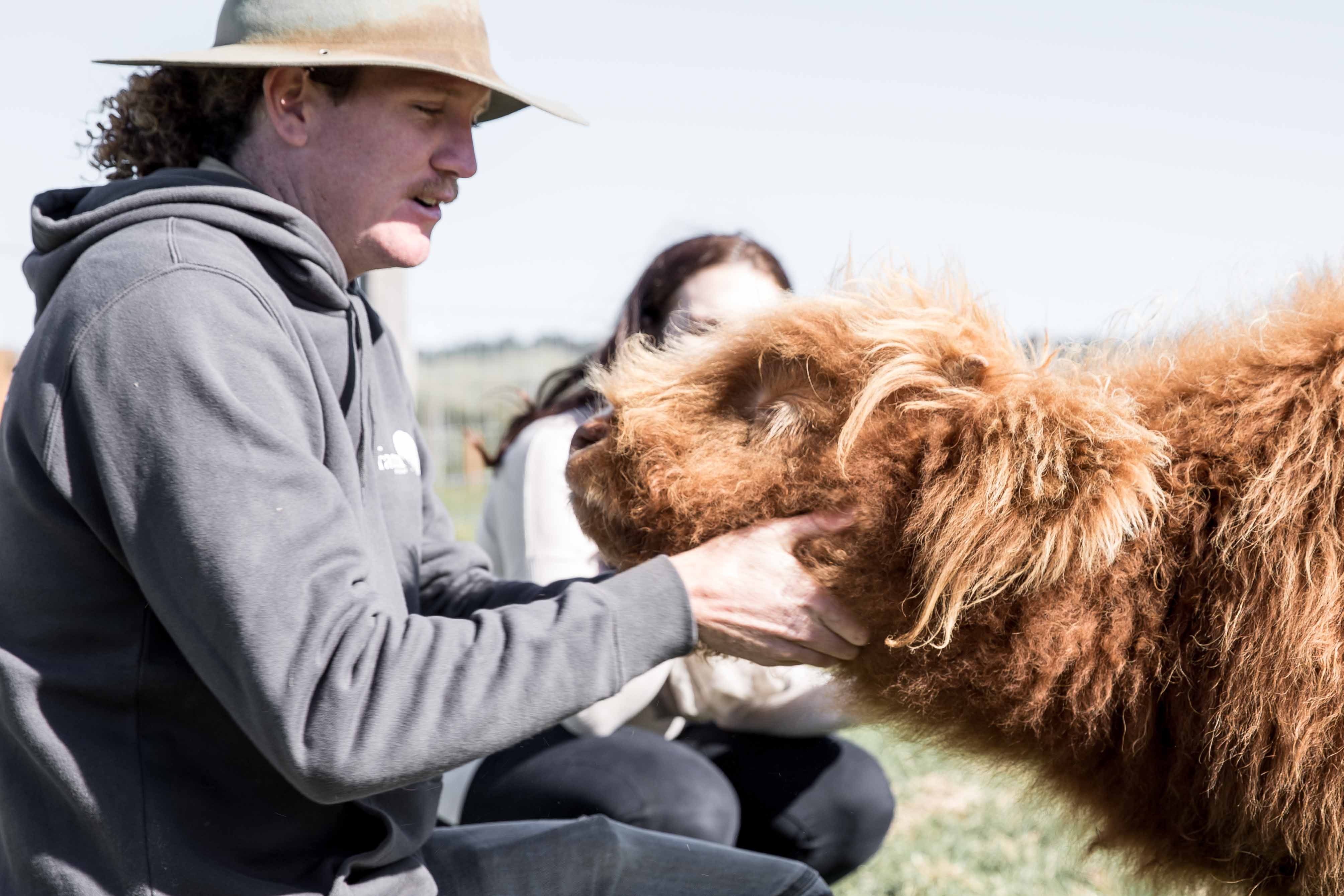
Tom and Emma have been so thrilled to see their little village thrive, they eagerly look to the future as new opportunities arise for them to replicate their model. Of particular interest is seeing it unfold in an urban setting.
Next time you’re passing through the Byron Bay region, take a moment to drop in and take in the scenery at The Farm offering a new landscape of possibilities. Few would argue there’s no greater satisfaction than being able to look up from your picnic rug as you munch on your lunch to see the fields where your food is growing.



